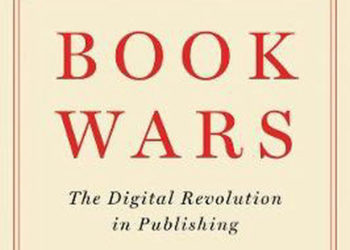I published my first peer-reviewed article back in 1998, but it took me a while to become a peer reviewer. I did my first review for American Journal of Botany in 2005, a year after completing my PhD at the University of Liverpool and after publishing a couple of articles from my doctoral research. I first joined an editorial board in 2006, when Bangladesh Journal of Plant Taxonomy (the journal where I published my first paper) created a new executive editor position. In 2009, I started mentoring young researchers through the AuthorAID program from INASP (UK). In 2011, the INASP and Bangladesh Academy of Sciences (BAS) organized training for Bangladeshi researchers on research communication — the first-ever event I designed and facilitated.
Although I have long been passionate about scholarly communication, I never took it on as a profession. Locked in my home in Bangladesh to save myself and my family from the latest wave of the pandemic, I started wondering — what does the volunteerism of individuals look like in scholarly publishing?

If we imagine a manuscript being drafted for a journal, we may see the first cluster of voluntary activities around it. In addition to taking help from friends or colleagues to analyze a dataset or draw a better diagram, early-career researchers often show their draft manuscripts to peers or senior colleagues at their institutions to see “if it is okay”. These not-co-authors offer their advice to young colleagues as a good will gesture or out of academic duty. Many research mentorship programs facilitate similar interactions, but in a bit more formal manner — AuthorAID brings together about 13,250 mentees and 850 mentors from all over the world, mostly from the Global South covering wide range of disciplines, while the Gobeshona Young Researcher Program focuses on the climate change research of Bangladesh, for example.
The second cluster of volunteerism can be seen once a manuscript is submitted to a journal. Many of the chief, managing, executive, section, and assistant editors of journals are volunteers, as are editorial board members. They provide their services because they feel a responsibility to help guide their field, because of the prestige associated with the journals, because the position is a recognition of their scholarship, just out of altruism, or for a mix of all of these reasons.
Peer-reviewers — the nameless, thus the most selfless volunteers of the journal publishing system — are also driven by similar motivations. Of course, there might be a subconscious bargain being fulfilled in their minds. Since academic disciplines are closed systems, academics review others’ manuscripts expecting that someone, somewhere, will do the same favor for them when they publish their own manuscripts. That’s why I see peer review as an example of “good karma”.
Of course, the concept of “open” peer review has given the good old anonymous (as we’ve become more aware of ableist language, journals are now working to do away with the term “blind”) peer review a new perspective, which coincides with the recent surge of preprint servers and the ongoing open science movement. Over the last few years, many journals have welcomed Registered Reports, adopting a two-stage peer-review system by adding peer-review of the research design before data collection. These examples show diverse trends in peer-review-related volunteerism.
Once an article is published, I see three different but related paths of volunteerism making up the third cluster. In one path, interested researchers voluntarily spread the link to the new article via social media, which indeed enhances the reach of the new publication. Upon personal request, authors sharing their published articles, which otherwise might be unavailable for non-subscribers to the journal, with colleagues and researchers worldwide via email or social media creates another path. A further path is taken when an author cites an original article in their new manuscript and enhances the reputation of the original article’s authors as well as the journal in which it was published.
The fourth cluster of volunteerism can be seen in the societies associated with scholarly publishing. While individuals or their organizations pay fees to become members of such organizations, they voluntarily get involved in numerous activities on their behalf. For example, besides being office-bearers of the Society for Scholarly Publishing (SSP), SSP members can serve on 13 different committees. In addition, the SSP Mentorship Program facilitates SSP members as mentors voluntarily offering professional advice to mentees.
Numerous conferences, training sessions and webinars organized by scholarly publishing societies often ask for additional fees from their members and non-member participants for covering event costs and organizational running expenses. But facilitators, resource persons, speakers, and panelists, who are essentially part of wider scholarly industry, offer their time, skills and knowledge voluntarily. Non-organizational scholarly publishing events, like the annual Researcher to Reader Conference, also seek advice and support from their volunteer advisory board members.
As the fifth cluster, many journal publishers are supported by interns, graduate students, or fellows working as volunteers on a short-term basis. Scholarly publishing foundations, indexing agencies, and other numerous commercial and not-for-profit entities, including start-ups, which support different aspects of scholarly publishing — from helping authors to check manuscript language to improving journals’ workflow to creating opportunities to enhance journals’ profile — also work with wide range of volunteers at different capacities (e.g., 15 AuthorAID Stewards based in 12 countries on five continents).
The sixth cluster includes scholarly blogs, magazines, and podcasts as these are driven by voluntary engagement from the contributors and guests. The Scholarly Kitchen (TSK), for example, in addition to its volunteer Chefs and Editor, has long been benefited from its outstanding guest authors who have written some of the most influential posts. Readers who comment on the TSK posts also make valuable contributions by starting or joining the conversations. Similarly, by voluntarily engaging in numerous discussions on social media, researchers and journal publishing professionals also take discussions and debates forward, often offering a 360° perspective on an issue.
The seventh and final cluster probably is the voluntary contributions we make by taking part in research and assessments conducted on scholarly communication by different agencies. As we fill in online survey questionnaires or respond to interview questions when asked, we help the researchers or project staff to generate new understanding of an issue or identify fresh directions. These in turn are translated into new organizational strategies, programs, and projects on research communication.
Now I wonder, if all these voluntary contributions were to be estimated and monetized, what the current US$ 25.7 billion scholarly publishing industry would look like.
Please feel free to add any other aspects of volunteerism in scholarly publishing in the comments below. As a volunteer, do you have any interesting experience to share? A few years back, Angela Cochran shared seven tips on how to effectively manage volunteers in scholarly publishing. How does your organization engage volunteers and manage their expectations? I would love to hear your thoughts.
Discussion
18 Thoughts on "Let’s Talk About the Volunteers in Scholarly Publishing"
Hello Haseeb, Great analysis and I agree with most of your points. However, I DO think that — particularly for academics at universities or research institutions — the act of what you call “volunteering” is not entirely devoid of self-interest. Granted, they won’t be “paid” or receive a direct benefit from the journals, societies, etc. they provide their service to, but quite a few of the instances of volunteering you raise result in “brownie points” that will allow them to further their careers, eventually presumably leading to tenure and promotion. Lack of such brownie points would be a barrier to tenure and promotion in many cases. Discuss 🙂
There is also the consideration given for past peer-review work when applying for residency permits (aka “Green Cards”).
Another aspect “enlightened self interest” involved in peer reviewing is the information gained (early access to research results) and the valuable skills that are honed by engaging at a deep level with article submissions (ability to determine when an article hits or misses the mark for originality, reproducibility, quality of presentation, etc.). At least, these are the arguments I would make in trying to get an overworked associate professor to take on yet another review assignment!
These are indeed some excellent points to motivate fellow young academics. Thanks for sharing them, Scott.
That’s an interesting aspect in volunteerism — the relationship between volunteering and self-interest. Thanks for raising that, Richard. I very much appreciate that, although we are not getting “paid” financially being volunteer, indeed we are getting immediate (self satisfaction) as well as long-term (self satisfaction, capacity development, recognition, career, etc.) benefits. Some of these can also be translated into financial gains in the long run (e.g. job security/tenure).
Thanks so much for this great post Haseeb. It’s a really important topic and one that has also been very much on my mind with both my NISO and SSP hats on. Both organizations rely heavily on our amazing community of volunteers – we literally could not function without their support. It’s essential to ensure that the support goes both ways, and that we value and nurture our volunteers, as well as recognizing them. (Side comment – one form of recognition that I’d love to see more widely used is ORCID’s membership and service affiliation, which enables individuals or – even better – their organizations to share information about volunteer activities – see https://support.orcid.org/hc/en-us/articles/360008897694-Add-a-membership-or-service-to-your-ORCID-record)
In a slightly different spin on Richard’s point – and speaking as a volunteer myself in several of the capacities you identify – I do firmly believe that you get out of it as much as you put in, if not more. Volunteering – including for SSP – has helped me in my career and professional development in so many ways (as well as being a lot of fun and leading to a lot of friendships!).
Ditto, excellent analysis and I agree with Richard de Grijs that there is a fair amount of enlightened self-interest behind all the volunteerism in scholarly publishing.
The 7-year gap between Haseeb Irfanullah’s first publication and first review invitation caught my eye. Peer review fatigue is a thing, editors routinely complain of the difficulty and delay in finding reviewers yet many early-career scholars are never invited. I put some of this on the publishers practice of only allowing one author’s contact address to be published in articles. The corresponding author is usually senior faculty, too busy to be bothered by all the review invitations. Co-authors and even first authors may be hard to track down. It involves external searching or writing to the too-busy corresponding author. Chinese papers are particularly difficult in this regard and I’ve seen reports that Chinese authors may be underrepresented in peer review. Why not just include contact information for all authors in publications!? Any publishers reading?
This is a very good suggestion about putting all the contact details on papers. There would be benefits beyond peer review too. I used to be a science and technology journalist and so scientific papers were a regular source of story leads for me. If the only contact information on a paper is for the senior person who runs the lab or attracted the grant then (a) they will probably be really busy (b) they may not be the person who did the majority of the practical work or analysis and (c) if they are always the person contacted then it inhibits the opportunities of early-career researchers to engage with people about their work and demonstrate their expertise.
Good point, Sian. I have seen (and practised) inclusion of more than one email address on papers, and I agree that this should be encouraged. Having said that, if a senior author receives any such request, I would say that it’s their responsibility to suggest that the request could be completed by a junior team member if a suitable person is indeed available. As senior author, you have a broader responsibility to your team, including the promotion of the careers and opportunities available to junior colleagues…
I agree with Alice’s comment about volunteering being rewarding and fun. One thing that I always wonder about professional volunteering (peer review etc) as opposed to volunteering in things completely unrelated to your work is when you should do them. It’s clear that volunteering for things completely unrelated to work is something that happens outside of your working day (eg at the weekends) but I wonder if others also find it a bit harder to distinguish when to do professional volunteering. In academia I think there’s an unwritten expectation that things like peer review and mentoring are part of your job but if you don’t work in academia but something related it’s trickier. I tend to do those kind of things in lunchtimes or straight after work so outside official work hours but while I’m in that sort of work head space rather than turning on my laptop on a Saturday specifically to do a peer review or some mentoring as a separate task. How do other people juggle this issue?
Great point Sian! In terms of work-related activities, I think it depends a lot on both your organization’s and your direct manager’s approach to volunteerism. In my experience, many organizations, both large and small are incredibly generous and supportive of professional volunteer opportunities that take place during working hours – as are many mangers. And rightly so, in my opinion, as I believe volunteering benefits the organization as well as the individual. But by no means all are, of course. Maybe it helps to work for an organization that is itself reliant on volunteers as there’s more understanding of their importance?
Good points Alice, especially the last one on working for an organization already relying upon volunteerism. But, as you said, I think direct line manager matters a lot in many organisations. Also, which careee stage you are in is important to determine how to balance your workloads, relationships with your line manager and colleagues you are responsible for, and of course how you value voluntary engagements at this moment of time.
All aspects of human interaction regardless of field, work, or play require communication of some sort. To place monetization on that which occurs at a cocktail party, scholarly meeting, reviewing a paper or serving on a board, etc. is just nonsense. The act of volunteering is an act of free will. No one is forcing one to volunteer. The definition of volunteer is to give of ones time for free. BTW where is my check for my comment?
Although I don’t know your background, if you happen to be an academic, have you recently looked at the tenure and promotion criteria of your institution? I have (I was a member of our Faculty leadership team until recently); in the different categories (research, teaching, leadership/community/service), there are clear expectations to take on certain responsibilities (including editorial board memberships or memberships of societies such as SSP or the ORCID Board), professional recognition (including through peer review), etc. As Haseeb indicated, to write professional articles, you will of course cite other relevant work (I don’t really consider that volunteering), so the whole package is related to your professional development and career progression. My university is certainly not an outlier in this area.
I fully agree with you that an act of voluneering is as act of free will. Thank you for your comments. But, when we get involved in a formal voluntary role, like reviewing a manuscript or mentoring a mentee or be on a committee/a board, we need to abide by some rules. And we accept such apparent boundaries/restrictions because we are committed to that particular voluntary work.
On monetization, yes, it can be a bit controversial issue. But sometimes we try to monetize some currently unmonetized services not to put in a new system to actually pay for those services, but i) to appreciate those services more in a much larger context and ii) to make investments to improve that system. In the present case it might be investing in capacity development in (early-career) academics or in developing a matrix system that formally appreciates voluntary roles of academics, as Richard noted in his comments.
Thank you for your work. Volunteering is such a great things to be able to do. And it is not available to all or at all times. It was good to see the focus here on it.
A couple of other types of scholarly communications volunteering:
1. The Coalition for Diversity and Inclusion in Scholarly Communications (https://c4disc.org/) was founded by 10 trade and professional associations that represent organizations and individuals working in scholarly communications. The Coalition was formed to discuss and address issues of diversity and inclusion within our industry. New members and partners join each month and members are represented by a volunteer on the steering committee and volunteer opportunities are available on various working groups and suggestions also sought for needed working groups from the scholarly communications community.
2. On the social end of the spectrum, I run Remotely Scholarly (https://t.co/8HZdNVCWkL?amp=1), an offshoot of Scholarly Social. Scholarly Socials are get-togethers for anyone involved in scholarly communications usually held close to a conference or community event.
Remotely Scholarly is a Slack space and occasional calls to keep in touch for those who work remotely much of the time. We ask questions, exchange resources, share industry news and most importantly, stay connected, from our work spaces wherever they are!
Thank you Bernie, for sharing some fantastic examples of volunteerism in scholarly publishing. I very much agree with your on appreciating the opportunities we get to get involved in volunteerism.
The different categories of volunteering and publishing are interesting. But like other commentators, I feel there is quite often no hard and fast division between professional activities, volunteering, leisure time activity, etc. I have nearly 20 years of volunteering editing a journal, I have personally overseen about 600 manuscripts. It may have helped others but I regard this as a benefit professionally in that I know about my field and the authors in it. And it gains no kudos at all from my neoliberal university employer that is only interested in research outputs, grants and high tuition income. Nonetheless, we are generally allocated about 20% of our time [in a full time academic appointment] for service activity so some of my journal time is paid for, but not the huge effort put in at weekends . The other comment is that much of the commercial profit-seeking publishing industry is fundamentally broken in moral terms , relying on our unpaid [by the publisher] labor to supply product which it then sells back to us in different ways or charges us handsomely to publish. So volunteering to run a journal in the not for profit sector is not just altruistic. It also is a political act, supporting OA, or academic-led journals. It really does need to be recognized as such. We are in a battleground between universities and publishers. See Dr Sam Moore on this https://www.samuelmoore.org/2021/08/01/the-future-relationship-between-university-and-publisher/



